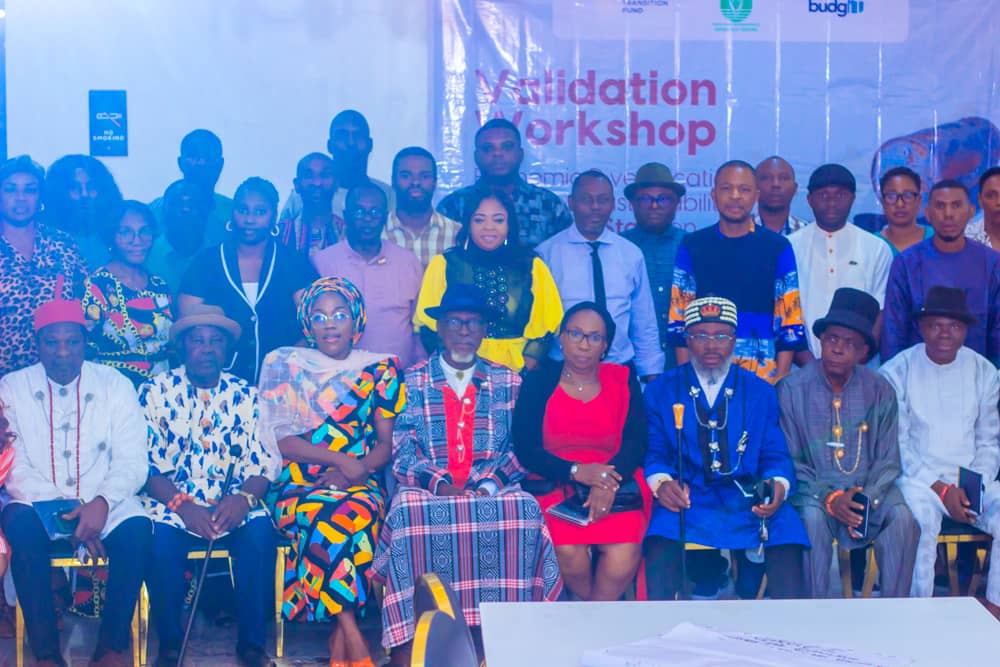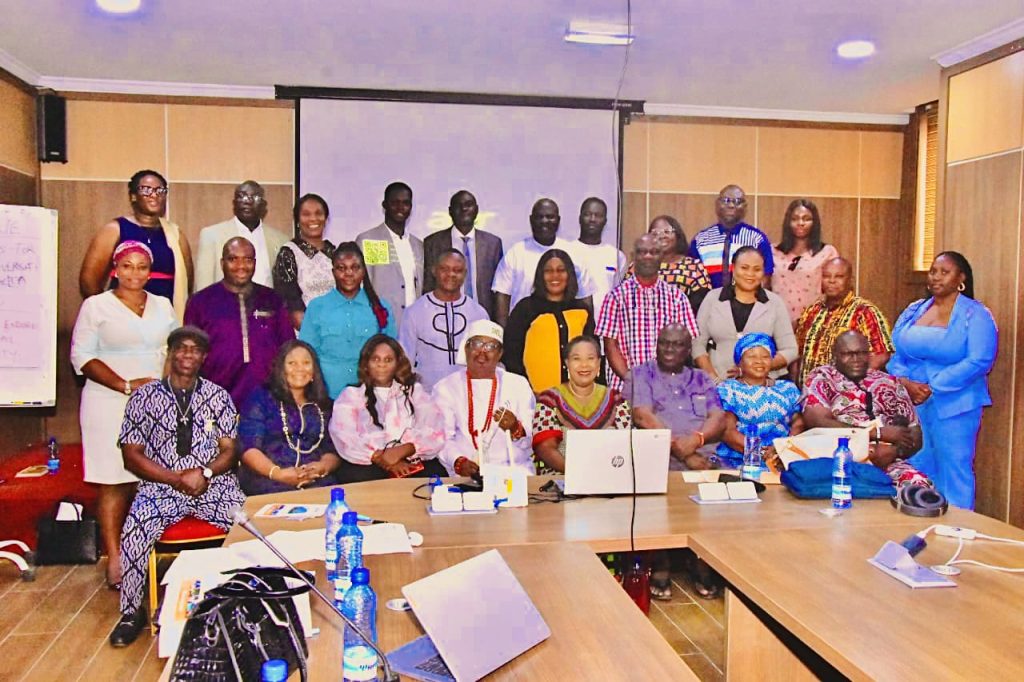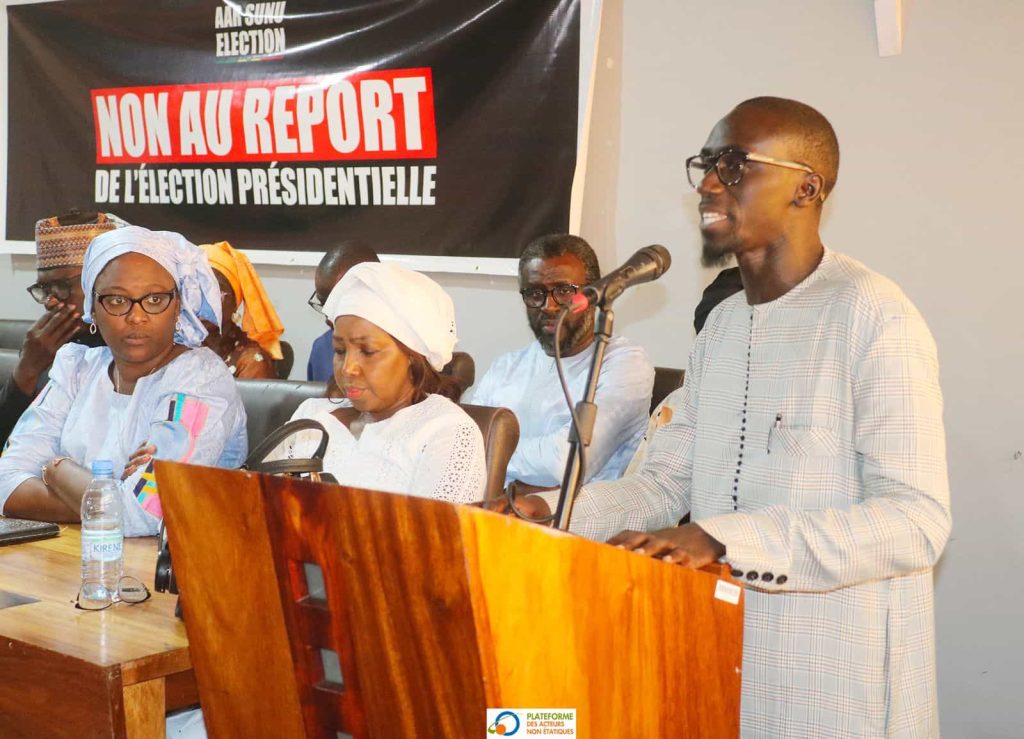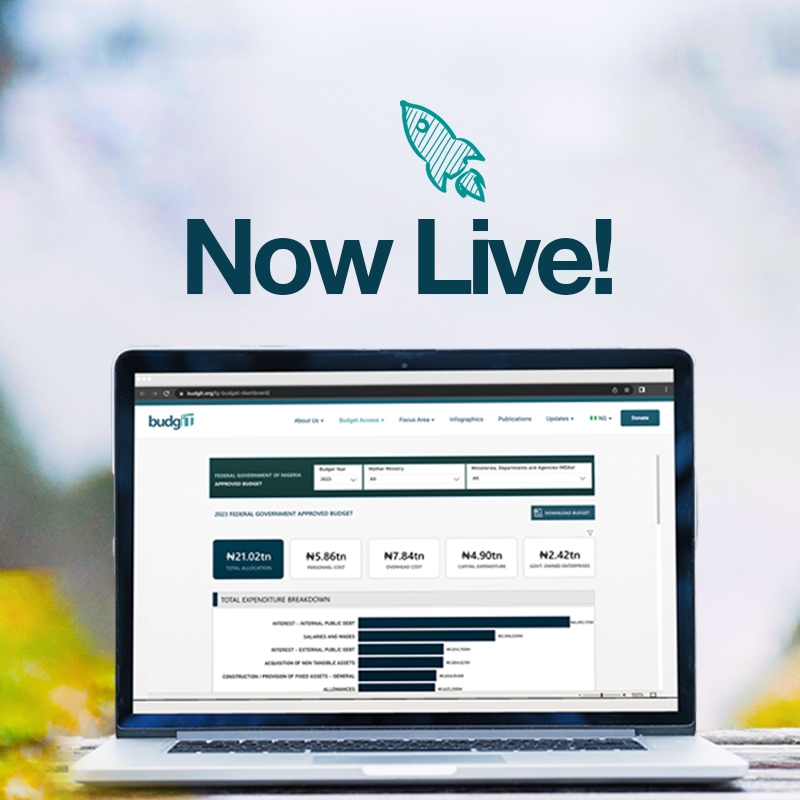Bayelsa State is rich in natural resources and cultural heritage, but faces significant economic challenges due to its heavy dependence on oil revenue. This reliance on oil and gas has contributed to issues such as widespread poverty, environmental degradation, and inadequate infrastructure, making the state particularly vulnerable to economic fluctuations. To mitigate these challenges, there is a pressing need for economic diversification and the exploration of sustainable revenue sources.
In response to these pressing issues, BudgIT Foundation, in collaboration with the Youths Environmental and Advocacy Centre, Bayelsa and with support from the Energy Transition Fund, convened a one-day validation workshop in Yenagoa, Bayelsa State. This meeting served as a follow-up to a Focus Group Discussion aimed at driving strategies for economic diversification and ensuring fiscal sustainability in Bayelsa State. It was also a critical platform for stakeholders to brainstorm and develop actionable solutions while enhancing their understanding of the unique challenges and opportunities within the state’s economic landscape.
Identified Areas of Diversification
The workshop highlighted several key areas where Bayelsa State has economic advantages:
- Tourism: The State’s rich cultural heritage, natural beauty, and unique ecosystems present significant potential for tourism development. Enhancing tourism infrastructure and marketing will attract visitors and stimulate local economies.
- Agriculture: With fertile land and favourable climate conditions, Bayelsa State needs to expand its agricultural sector. Investments in modern farming techniques and agro-processing can enhance productivity and create employment opportunities.
- Blue Economy: Given that 75% of the state is marine, the development of sustainable fishing, aquaculture, and marine resource management will harness the economic potential of the ocean while preserving biodiversity.
Strategies for Economic Diversification
A robust discussion led to the identification of the following strategies for economic diversification:
- Development of Short and Long-Term Strategic Plans: Formulating clear and actionable plans will guide investment and project implementation, ensuring alignment with the state’s economic goals.
- Promotion of Public-Private Partnerships (PPP): Engaging private sector partners can enhance investment in infrastructure and services, bringing expertise and efficiency to various sectors.
- Implementation of Tax Reforms: Strengthening tax collection methods will increase revenue without overburdening citizens, making fiscal management more sustainable.
- Utilisation of Technology: Adopting modern technologies will improve efficiencies in agriculture, tourism, and service delivery, thereby fostering innovation and competitiveness.
- Development of Human Capital: Investing in education and skills training will empower the State’s workforce, preparing individuals for diverse job opportunities in emerging sectors.
- Effective Debt Management: Strategies to reduce the State’s debt burden are crucial for fiscal health, enabling funds to be redirected toward development projects.
- Improvement of Ease of Doing Business: Streamlining regulations and processes will attract both local and foreign investments, thereby enhancing economic activity and growth.
- Revamping Existing Tourist Sites: Upgrading and promoting sites like Brass and other tourist sites will boost tourism, generate revenue and create jobs in the hospitality sector.
- Investment in Water Transportation: Developing water transport infrastructure will facilitate the movement of goods, reduce costs, and improve trade efficiency.
- Enhancement of Security Measures: Ensuring a safe environment is vital for attracting investment and promoting tourism, necessitating collaboration with security agencies.
- Improvement of Transportation Infrastructure: Upgrading roads and transportation networks will facilitate the movement of goods and people, thereby supporting economic activities across various sectors.
Fiscal Sustainability
The workshop also focused on key elements critical to achieving fiscal sustainability:
- Ensuring Transparency and Accountability: Establishing clear mechanisms for financial reporting will build public trust and ensure funds are used effectively.
- Monitoring and Evaluation (M&E) Processes: Implementing robust M&E frameworks for budget lines enables timely adjustments and improvements in project execution.
- Enhancing Participatory Transparency Briefings: Engaging citizens in financial discussions will foster accountability and ensure that public funds are spent in alignment with community needs.
- Quarterly Financial Reports: Regular financial updates will provide stakeholders with valuable insights into the state’s fiscal health, enabling informed decision-making.
- Sanctions for Misuse of Funds: Establishing consequences for financial mismanagement will deter corruption and promote responsible governance.
- Reviewing and Strengthening Fiscal Policies: Continuous assessment and improvement of fiscal policies will ensure they meet the evolving needs of the state.
- Prioritising People-Centred Projects: Focusing on projects that directly benefit citizens will ensure that development efforts are relevant and impactful.
- Leveraging ICT for Fiscal Accountability: Utilising technology will enhance transparency in financial management, making it easier for citizens to access information and hold officials accountable.
The workshop underscored the importance of collective efforts in implementing these strategies to promote economic diversification and fiscal sustainability in Bayelsa State. Stakeholders are encouraged to take proactive steps in their respective domains to foster a resilient economy.
Signed:
- BudgIT Foundation
- Agbia Community, Bayelsa
- Biosphere Preservation Initiative
- BWEJC Global Care Rescue Mission
- Chiefs Council, Yenagoa- Bayelsa State
- Epie Kingdom Development Organisation
- FACE Initiative
- Greenleaf Advocacy and Empowerment Initiative
- GRIT Foundation
- Ministry of Budget, Bayelsa State
- Ministry of Community Development, Bayelsa State
- Ministry of Ijaw National Affairs
- Ministry of Justice, Bayelsa State
- Ministry of Lands and Survey, Bayelsa State
- Ministry of Marine and Blue Economy, Bayelsa State
- Ministry of Mineral Resources
- Ministry of Trade and Investment, Bayelsa State
- Ministry of Youth Development, Bayelsa State
- NAWOJ BVS
- Synergy Development Care
- Tsivie Development Centre
- Women Without Borders
- Youth Environmental and Advocacy Centre
- Association of Rural Chiefs for Peace and Development Initiative



